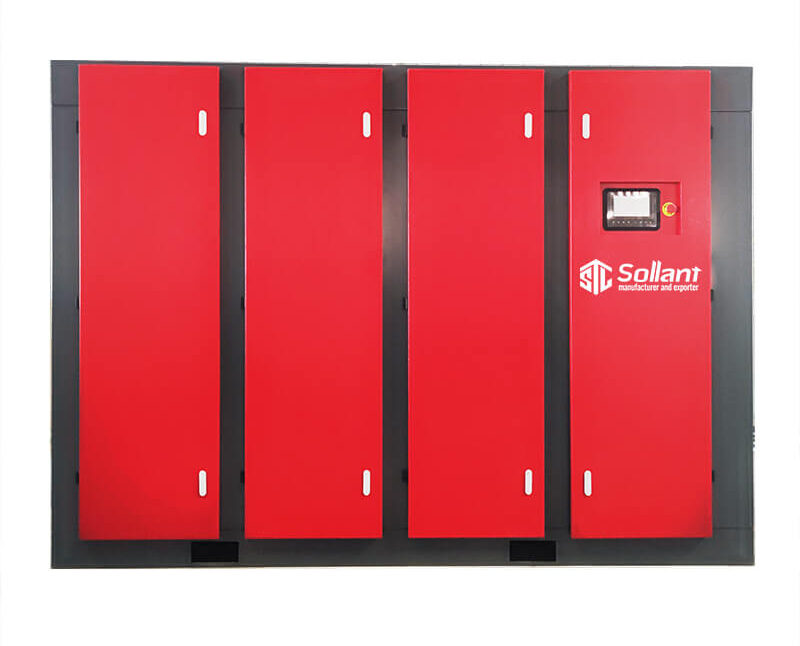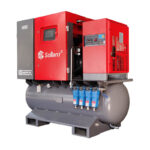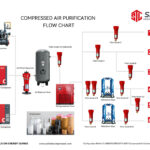Formation of varnish, sludge, coking, and carbon deposits:
During the long-term continuous operation of the air compressor, the impurities, moisture and other components in the air are easy to enter the air compressor oil, which is the external pollution source of the sediment. The main components of conventional air compressor oil on the market are hydrocarbons. Air compressors often operate under high temperature and high pressure conditions, coupled with oxygen, moisture, and metal catalysis, air compressor oil will undergo oxidation reactions, resulting in oil Deterioration, the formation of internal oxides.
The higher the intensity of air compressor oil exposed to high temperature and oxygen, the more intense the oxidation reaction will be. Peroxides and hydroperoxides undergo aldol condensation to form aggregates or polymers, which are further oxidized to highly alkoxylates, often referred to as oxides. These oxides are usually very viscous and easily form deposits on the machine head, oil circuit, and casing. Common deposits include varnish, sludge, coking, and carbon deposits. Lacquer film is a sticky film formed on hot surfaces by resin separation and dehydration and/or polymerization. This deposit is not serious and is only a thin film.
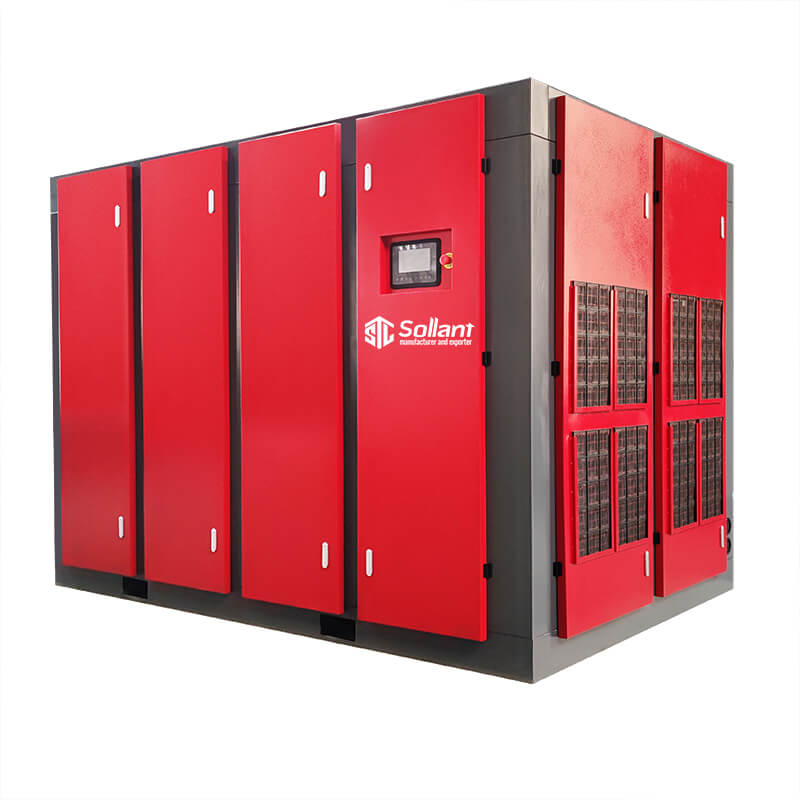
The varnish is a derivative of the lubricant. When the temperature of the air compressor components is low, the sediment produced is sludge. Sludge can be soft or slightly hard in consistency. If the working conditions are mild, the sludge produced may be soft. This type of sludge is called low-temperature sludge, and they appear when the ambient temperature is lower than 95°C. High-temperature sludge appears when the ambient temperature is higher than 120°C and has a thicker consistency. When the oxidation of oil is intensified, a large number of polymers and gums gather together to form the so-called coking. At this time, the wear of the air compressor causes metal debris to enter the oil. These metal ions are catalysts for oxidation reactions and accelerate coking. Coking is also a deposit that may contain oil, water, resin (similar to varnish) and solid contaminants, among others.
The coking tendency of different types of air compressor oil will also be different. After the cause of the mechanical failure of the compressor is ruled out, the quality of the air compressor oil will directly determine the coking tendency of the air compressor. Carbon deposits are a class of harmful substances that are more stubborn than coking. Under the repeated action of high temperature and high pressure, the jelly produced by oxidation interacts with oxygen, dust, impurities, etc. in the compressed air to become asphalt and further carbonize to form carbon deposits.
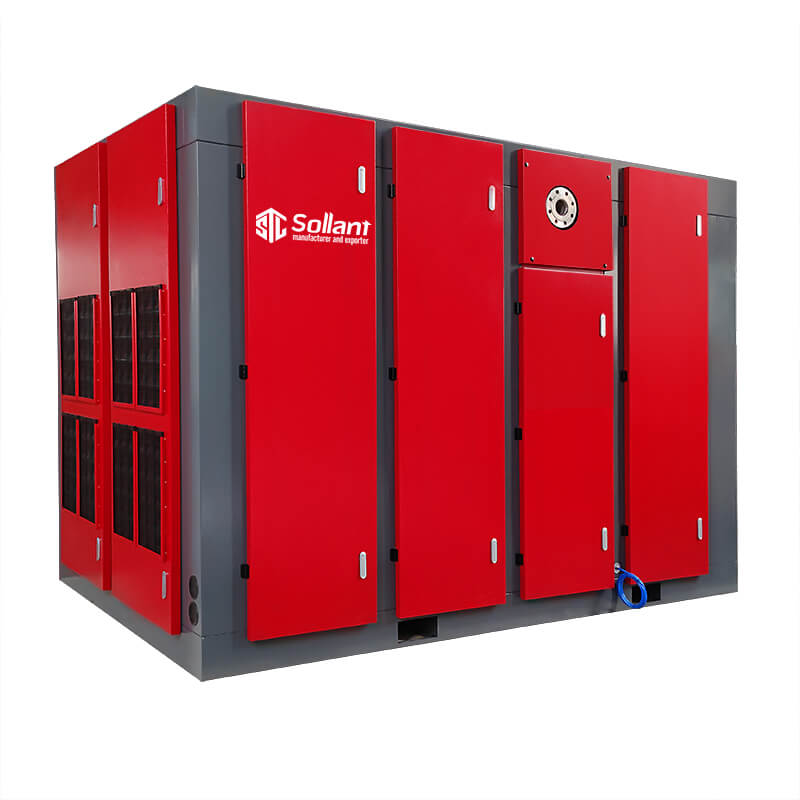
The main factors for the formation of carbon deposits are:
1. High temperature: High temperature is the decisive factor causing lubricating oil to oxidize and deteriorate. The higher the temperature, the faster the oxidation speed and the greater the possibility of carbon deposition;
2. Pressure: After the air is compressed by the air compressor, the pressure increases and the oxygen concentration increases, which increases the oxidation speed of oil products and the possibility of carbon deposit formation;
3. Metal catalysis: The metal plays a positive catalytic role in the oxidation reaction, which will accelerate the reaction;
4. Types of air compressor oil: The quality and amount of air compressor oil will have varying degrees of impact on the formation of carbon deposits. If mineral type air compressor oil is used, the unsaturated components in the base oil are more likely to form carbon deposits. Air compressor explosion accidents are mostly caused by the accumulation of carbon deposits. Carbon deposits are high-temperature products, but they can also spontaneously ignite at high temperatures. Usually, the self-ignition temperature of carbon deposits is around 180°C, and the outlet temperature of the air compressor is generally not higher than 160°C, so under normal operating conditions, carbon deposits will not be ignited. However, when the air compressor has instantaneous high temperature or high pressure due to some faults, the temperature inside the air compressor rises sharply, causing carbon deposits to spontaneously ignite, causing the oil in the carbon deposits to vaporize rapidly. When the vaporized oil gas and the high concentration of oxygen and high temperature in the compressed air exist at the same time, it will cause the compressor to explode and cause an accident.
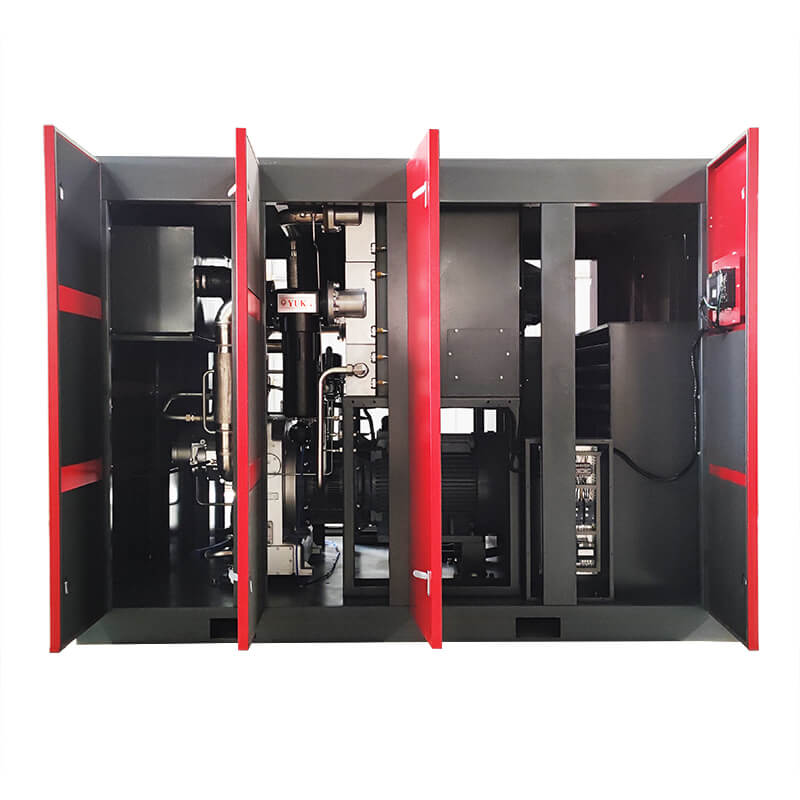
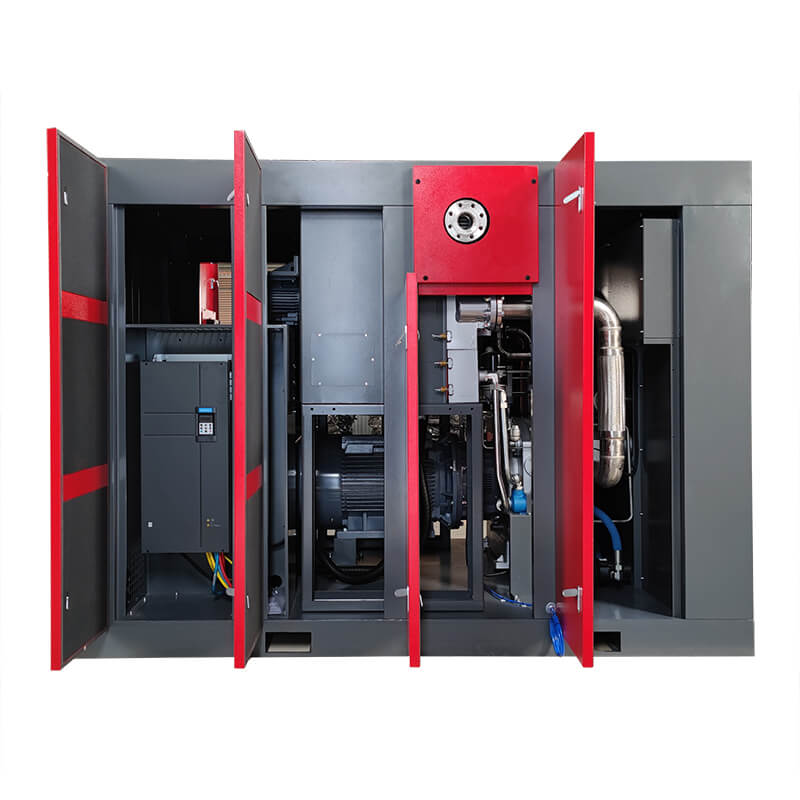
The control of oil sludge and carbon deposits in air compressors aims at the formation mechanism of harmful substances such as air compressor oil sludge and carbon deposits, and maintains the good working conditions of air compressors:
1. Choose clean air compressor oil, and replace the air compressor oil regularly according to maintenance requirements. According to the operating conditions and conditions, you can choose the air compressor oil with the formula of V and IV synthetic oil, and at least use the air compressor oil based on the highly refined hydrocarbon oil of III to avoid the use of insufficient saturation and impurities. More Group I/II mineral oils.
2. Select maintenance accessories and materials, and replace them regularly according to maintenance requirements. High-quality and used oil, oil filter, and air filter can filter external and internal pollution sources to ensure the normal operation of the air compressor.
3. Maintaining normal working temperature and working pressure and ensuring the ventilation of the air compressor station is a means of getting twice the result with half the effort.
4. Use auxiliary cleaning methods to keep the compressor clean, choose a mature online cleaning fluid, and regularly clean the air compressor to keep the rotor and oil circuit of the machine head clean and prevent problems before they happen.
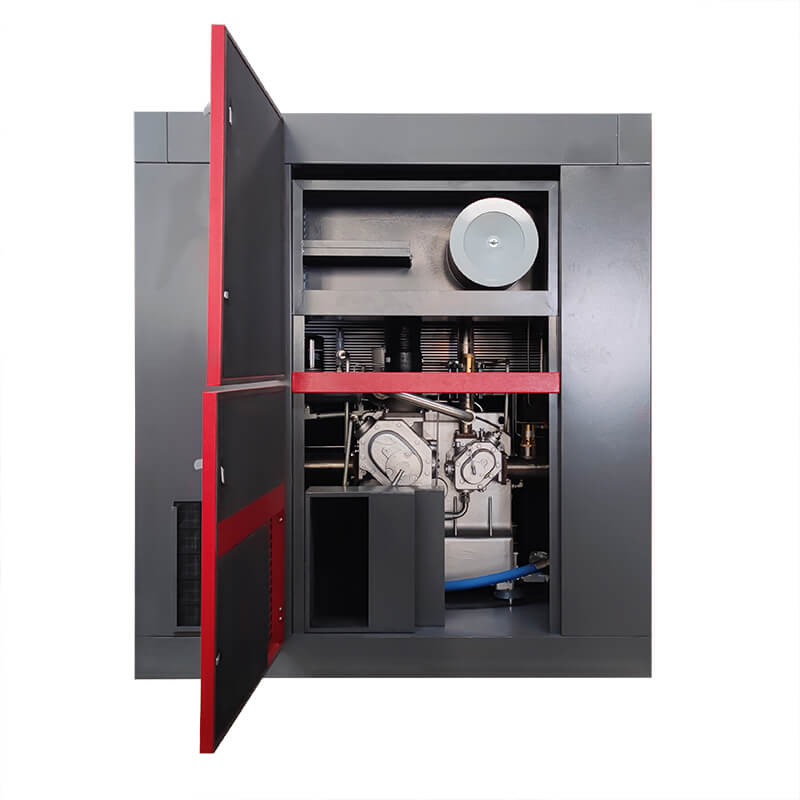
Sollant Focus on Energy Saving
.jpg)


